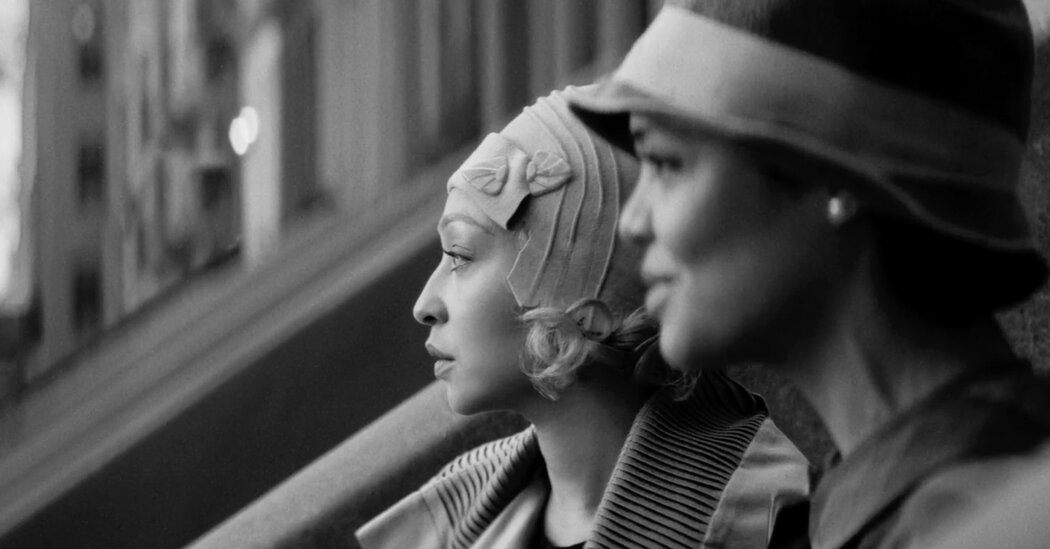
Irene Redfield, the restless heart of Rebecca Hall’s piercing drama “Passing,” has a beautiful dream of a life. She also has a handsome husband who’s a doctor, a pair of well-behaved children, an elegant townhouse and a maid to help keep the domestic churn in check. She has good friends and meaningful charity work. Her figure is trim and graceful; her lovely face serene and unlined. Everything is as it should be, or so Irene believes. She doesn’t know that her idyll is as fragile as a soap bubble, and that this glistening, quivering fantasy she has created needs just one touch to vanish.
Set in the 1920s, “Passing” tells what happens to Irene (Tessa Thompson) when a childhood friend, Clare (Ruth Negga), enters that dream, disturbing its peace and threatening its careful illusions. Like Irene, Clare is a light-skinned African American living in Jim Crow America. Unlike Irene, Clare is living as white: “passing.” Orphaned after her father’s death and put into the care of white relatives who treated her like the help, Clare vanished. Years later, she has re-emerged with a wealthy white husband, John (Alexander Skarsgard), who’s oblivious to her history. He also — as he tells the startled Irene as Clare watches — hates Black people, unaware that he’s speaking to one.
Based on Nella Larsen’s brilliant 1929 novel, “Passing” is an anguished story of identity and belonging. Like the book, the movie centers on Irene, a bourgeois wife and mother who can’t grasp why she is so addled by Clare. The two meet again by accident, each having taken refuge from the blistering summer heat in the grand tearoom of a fashionable New York hotel. Irene enters the tearoom with palpable wariness, her gait slowed, head down and face partly obscured by the semitransparent brim of her cloche hat. There are no racially restrictive signs in the hotel; the restrictions are a given. Like Clare, Irene has transgressed. But then she goes home to Harlem.
Irene doesn’t recognize Clare at first, a confusion that reverberates throughout a story that hinges on appearances, racial and otherwise. Irene may be on her guard in the hotel, but the very fact that she enters the tearoom speaks to her self-confidence and to how she has learned to navigate the color line. Because, like Clare, Irene is also passing; unlike Clare, she is only briefly slipping into a masquerade. Irene compartmentalizes and rationalizes her act; she needs to cool down, the tearoom is a breezy refuge, if one she intentionally seeks out rather than merely happens upon. Yet by passing, however fleetingly, she also becomes Clare’s double.



